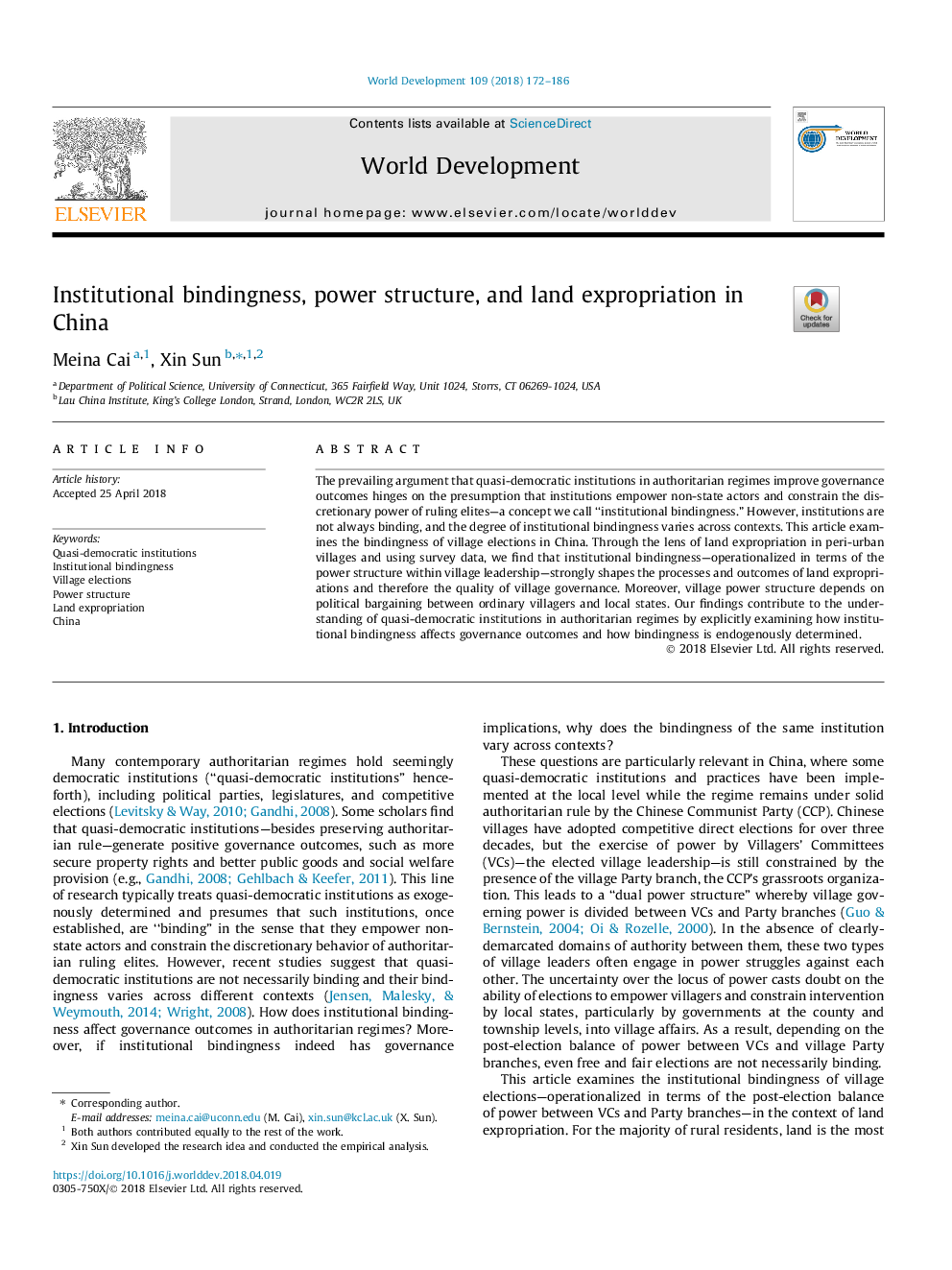| Article ID | Journal | Published Year | Pages | File Type |
|---|---|---|---|---|
| 7391608 | World Development | 2018 | 15 Pages |
Abstract
The prevailing argument that quasi-democratic institutions in authoritarian regimes improve governance outcomes hinges on the presumption that institutions empower non-state actors and constrain the discretionary power of ruling elites-a concept we call “institutional bindingness.” However, institutions are not always binding, and the degree of institutional bindingness varies across contexts. This article examines the bindingness of village elections in China. Through the lens of land expropriation in peri-urban villages and using survey data, we find that institutional bindingness-operationalized in terms of the power structure within village leadership-strongly shapes the processes and outcomes of land expropriations and therefore the quality of village governance. Moreover, village power structure depends on political bargaining between ordinary villagers and local states. Our findings contribute to the understanding of quasi-democratic institutions in authoritarian regimes by explicitly examining how institutional bindingness affects governance outcomes and how bindingness is endogenously determined.
Related Topics
Social Sciences and Humanities
Economics, Econometrics and Finance
Economics and Econometrics
Authors
Meina Cai, Xin Sun,
